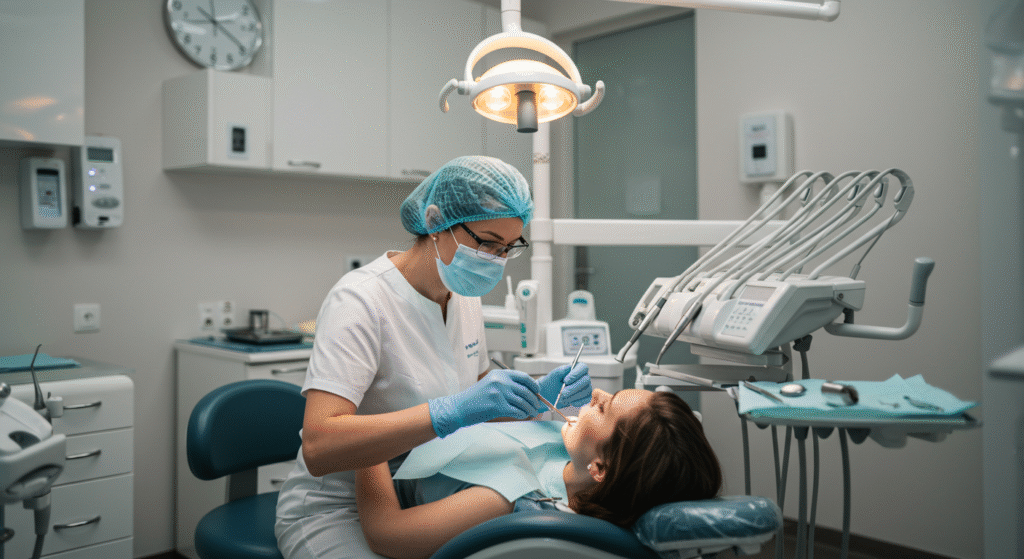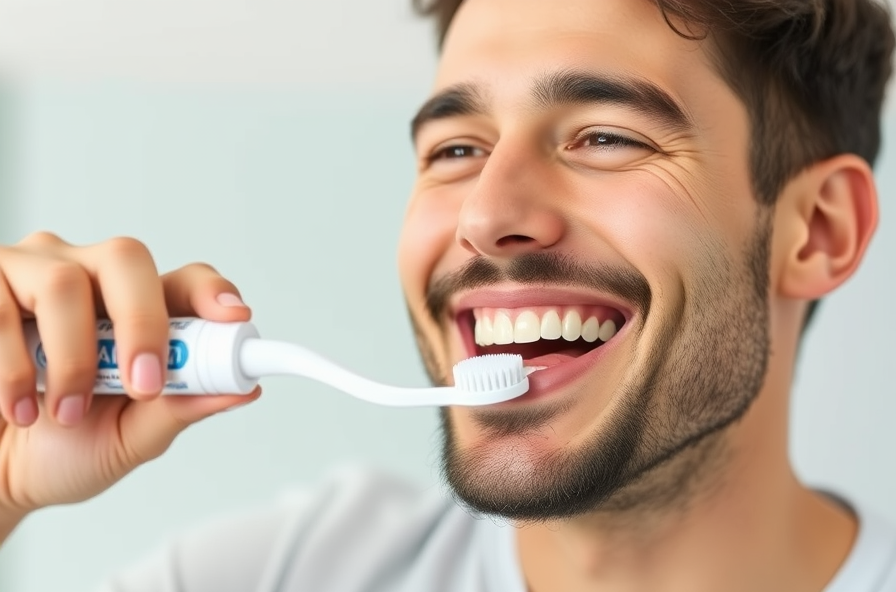
Cavities. They happen. Doesn’t really matter how old you are or how well you think you’re taking care of your teeth—they still find a way in sometimes. And honestly, they’re sneaky like that. You don’t always know they’re coming until they’re already there, messing with your enamel and making your morning coffee feel like an attack.
Let’s actually talk about it. Like, what causes cavities in the first place, how your teeth might be trying to warn you (and yes, they absolutely do that), and what can be done about them—ideally before you’re sitting in a dentist’s chair wondering how this tiny little hole is going to cost you hundreds of dollars.

⚠️ When Your Teeth Try to Tell You Something
At first? Nothing. No pain, no sign, nothing dramatic. Everything seems fine… until it’s not.
Maybe it starts with a zing—like a tiny jolt when you eat something cold or sip something sweet. Not enough to make you panic, but enough to make you pause. Some people say it feels like a little “ping” inside their tooth. Others mention a spot that suddenly feels rough when they run their tongue over it. And once you feel that, you can’t unfeel it.
You might even start noticing a weird taste in your mouth. Not from food—just something off, like metal or bitterness. And bad breath that brushing doesn’t really fix? Yeah, that’s not just gum slacking off. Your teeth are trying to drop hints, and most of us just miss them.
🧪 What’s Actually Going On
Here’s the science-y part, but I’ll keep it simple. Your teeth are covered in enamel. That’s like their armor. Hard, protective, tough to damage… until acid shows up.
Now, this acid doesn’t appear out of nowhere. It comes from bacteria that naturally live in your mouth. They’re basically freeloaders. But give them sugar? They turn into a full-on acid factory. Soda, cookies, dried mango, even that “healthy” granola bar—bacteria love that stuff. And when they eat, they produce acid. That acid? It slowly eats away at your enamel, bit by bit.
Snacking often, especially on sticky or sugary stuff, gives bacteria more chances to go wild. And if brushing or flossing doesn’t happen as often as it should, you’ve basically got a party happening in your mouth—and not the fun kind.
🛠️ So… What Do You Do If You Have One?
If you catch a cavity super early, before it’s become a literal hole in your tooth, you might be able to stop it or even reverse it a little. How? Brushing like you mean it. Using a good fluoride toothpaste. Maybe adding in a rinse. Keeping sugar low for a while. Basically, giving your enamel a break and a chance to recover.
But once a hole forms, that’s when the dentist steps in. Usually with a filling. They’ll clean out the decayed part and fill it with stuff that’s safe and tooth-colored (or silver, if that’s your thing). It’s fast and not nearly as scary as it sounds.
If it’s a bit worse, like if the tooth is too weak for just a filling, they might suggest a crown. That’s like a little helmet for your tooth. And if the decay reaches all the way to the pulp—where the nerves live—then it’s root canal time. Nobody loves that phrase, but it’s still better than losing the tooth entirely.

🧼 Prevention Is (Still) the Best Plan
Look, I get it. Nobody wants to floss. Brushing at night when you’re already half-asleep? Meh. But the truth is, a few boring habits save you from a world of trouble later.
Floss once a day. Brush properly (not just speed-brushing for 15 seconds). Use fluoride. Drink more water. Cut back on sugar when you can. And go to the dentist before something hurts. Most people wait until the pain shows up—and by then, it’s too late for the “easy fix.”
🔎 People Are Asking…
-
How do you actually reverse early decay (is that real)?
-
Why does my tooth hurt from cold stuff suddenly?
-
What kind of toothpaste helps with sensitivity and enamel?
-
Can cavities really cause bad breath?
-
How do I know if I need a filling or if it’ll go away?
Dental Caries – StatPearls – NCBI Bookshelf
Cavities (Tooth Decay) Symptoms, Causes & Treatment
Cavities and tooth decay – Symptoms and causes – Mayo Clinic
Today’s related searches: how to reverse early tooth decay, best way to stop tooth sensitivity from cavities, how to treat a cavity at home, how to choose the right fluoride toothpaste, how to get rid of bad breath caused by cavities, how to prevent cavities naturally, how to repair enamel loss from cavities, best foods to avoid for cavity prevention, how to floss properly to prevent cavities, how to know if you need a dental filling
Wishing you a speedy recovery.